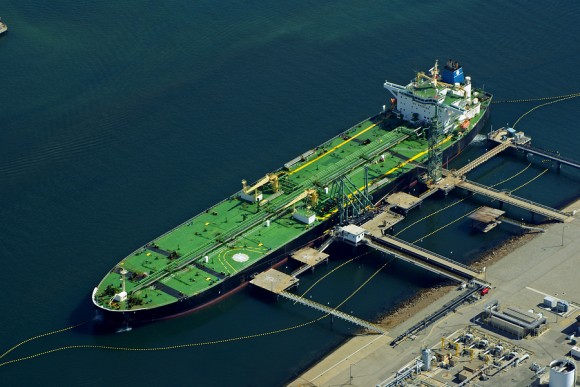Insurance companies based in the EU are not allowed to provide cover for ships that carry Iranian cargo.
The EU sanctions are aimed at the protection and indemnity (P&I) clubs based in the EU, which dominate the marine insurance industry. They follow a series of other sanctions that the U.S. has put in place against Iran, including one against oil-related transactions that took effect on June 28.
Washington and its allies hope that the measures force Teheran to halt its nuclear program, which they believe is being used to develop weapons, a claim Iran denies.
The following analysis gives details on how Iran’s four biggest oil customers – who together, purchase more than half of Iran’s oil exports – are dealing with the sanctions.
CHINA
In July, China started using the vessels of the National Iranian Tanker Co. (NITC) to deliver oil to its ports, shifting responsibility for insurance to Tehran, sidestepping the EU ban.
So far, it has nominated full contract volumes of crude for loading in August, just over 16 million barrels. While oil imports have not returned to pre-crisis levels, there has been an increase in crude purchases.
China’s crude oil imports from Iran fell nearly a third in July from an 11-month high in June.
As Iran’s largest trading partner and biggest oil customer, China still disapproves of the tougher Western sanctions and says Iran should be allowed to have a nuclear program for civilian purposes. It is opposed to Iran having a nuclear weapon.
INDIA
India’s top oil buyer, Mangalore Refinery and Petrochemicals Ltd, bought 600,000 barrels of Oman oil through a tender in August and is looking towards more tenders to make up for a shortfall in Iranian supplies.
While the country has also received embargo waivers from the United States, it has not resumed full trade with Tehran. The country’s state-run oil refineries have been given government permission to continue purchasing oil from Iran on a CIF (Cost, Insurance and Freight) basis.
State-insurers, led by General Insurance Corp (GIC), have also been allowed to provide up to $50 million in protection and indemnity (P&I) cover for ship owners carrying Iranian oil. It is a fraction of the typical $1 billion that is offered to very large crude carriers (VLCC) carrying around 2 million barrels of crude.
India is selectively allowing refiners to import oil using Iran’s ships and insurance cover. But Iran does not have enough aframaxes to suit MRPL’s needs and Indian shippers feel insurance cover provided by local insurance firms is inadequate.
JAPAN
Japan is the only country to offer sovereign guarantees on ships carrying Iranian crude. They government is offering cover of up to $7.6 billion, close to the $10 billion usually offered by EU-based insurers that dominate the marine industry.
Japan imported 126,726 barrels per day (bpd) in July, down 52.5 percent from the same month a year ago and down 23.1 percent from June, data from the ministry of finance showed.
SOUTH KOREA
South Korea has joined its Chinese counterparts by asking Iran to deliver crude on Iranian tankers. This shifts the responsibility for insurance to Tehran, sidestepping the EU ban.
This comes after Seoul previously said there would be no imports because of the new restrictions.
Of South Korea’s four refiners, only SK Energy and Hyundai Oilbank import Iranian crude. Asia’s fourth-largest economy imported 137,400 bpd in July, 42 percent lower than a year earlier, data from the state-run Korea National Oil Corp showed.
(Compiled by Elizabeth Law in Singapore; Editing by Ed Lane)
Was this article valuable?
Here are more articles you may enjoy.



 Florida’s Commercial Clearinghouse Bill Stirring Up Concerns for Brokers, Regulators
Florida’s Commercial Clearinghouse Bill Stirring Up Concerns for Brokers, Regulators  Insurance Broker Stocks Sink as AI App Sparks Disruption Fears
Insurance Broker Stocks Sink as AI App Sparks Disruption Fears  Maine Plane Crash Victims Worked for Luxury Travel Startup Led by Texas Lawyer
Maine Plane Crash Victims Worked for Luxury Travel Startup Led by Texas Lawyer  Inside the Toxic Legacy of Georgia-Based Mulitbillion-Dollar Carpet Empire
Inside the Toxic Legacy of Georgia-Based Mulitbillion-Dollar Carpet Empire 

